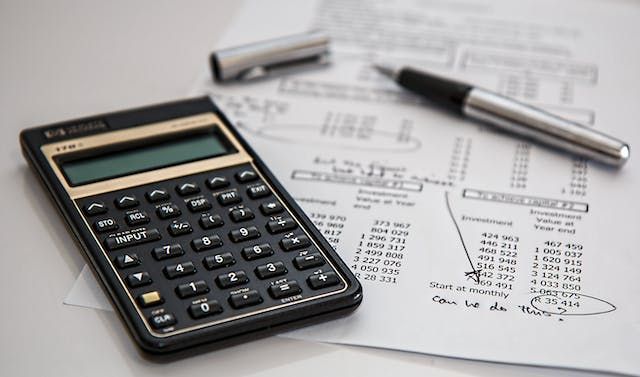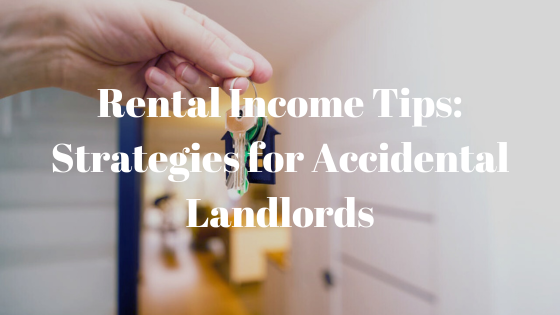What Landlords Need to Know About Depreciation and Property Value?

Key Takeaways
- Depreciation Offers Valuable Tax Benefits - Landlords can deduct a portion of their property’s value each year—excluding land—to reduce taxable income and improve cash flow.
- Book Value ≠ Market Value - Depreciation lowers the property's book value for tax purposes but doesn't directly impact its market value, which is influenced by location, demand, and upgrades.
- Accurate Record-Keeping is Essential - Properly tracking depreciation, improvements, and repairs ensures you claim all eligible deductions and avoid costly tax mistakes.
- Strategic Planning Maximizes ROI - Knowing when depreciation ends, how upgrades affect your deductions, and avoiding common errors empowers landlords to make smarter investment decisions.
Are you confident you fully understand how depreciation affects your rental property's value and your bottom line? Many landlords overlook the impact depreciation can have on their investment, missing out on important financial benefits or misjudging their property’s worth.
Whether you’re managing one unit or a portfolio, knowing how depreciation works helps you make smarter decisions and protect your investment over time.
For investors in Charlotte,
Dawson Property Management offers expert guidance to navigate these complexities with confidence.
This article will break down what you need to know about depreciation and property value, so you can maximize your rental income and plan effectively for the future.
Understanding Depreciation: What Every Landlord Should Know?
Depreciation is the process of spreading the cost of your rental property over its useful life. For landlords in Charlotte, understanding depreciation helps in calculating tax benefits while reflecting the gradual wear and tear of the property.
It applies mainly to the building structure, not the land itself, and allows you to deduct a portion of the property’s value each year.
Knowing how depreciation works ensures you claim the right deductions and manage your investment smartly. This knowledge is key to maintaining accurate financial records and maximizing your rental income over time.
How Depreciation Impacts Your Property’s Market Value?
Depreciation can influence how you perceive your rental property’s value, especially in Charlotte’s evolving real estate market.

While it reduces your property’s book value for tax purposes, it does not necessarily lower the actual market value, which can be affected by location, demand, and improvements.
Understanding this distinction helps landlords avoid confusion when assessing resale opportunities or refinancing options. Keeping an eye on both depreciation and
market trends allows you to make informed decisions about holding, upgrading, or selling your property.
The Role of Depreciation in Rental Property Taxes
Depreciation plays a crucial role in reducing your taxable rental income as a landlord in Charlotte. By deducting a portion of your property’s value each year, you lower the amount of income subject to taxes, which can improve your cash flow.
However, it’s important to track depreciation carefully because it may affect capital gains taxes when you sell the property. Being aware of how depreciation interacts with tax rules ensures you stay compliant and optimize your tax benefits without surprises.
Strategies to Maximize Depreciation Benefits as a Landlord
Landlords in Charlotte can take several steps to maximize depreciation benefits. First, properly separating the value of the building from the land ensures you only depreciate the right portion. Keeping detailed records of improvements, repairs, and property updates can also increase depreciation deductions.
Consulting with a tax professional familiar with rental properties helps you identify all eligible deductions and avoid errors. These strategies support smarter financial planning and can increase your overall return on investment.

Common Depreciation Mistakes That Can Cost You
One common error is failing to separate the value of the land from the building, leading to incorrect deductions since land cannot be depreciated. Another is neglecting to track improvements properly, which could increase your allowable depreciation.
Some landlords also forget to adjust depreciation after
selling part of a property or converting it to personal use. Avoiding these mistakes requires careful record-keeping and understanding tax rules to protect your investment and maximize returns.
When Does Depreciation Stop Affecting Your Property?
Depreciation for rental properties in Charlotte typically lasts 27.5 years, which is the
IRS standard for residential real estate. After this period, the property is considered fully depreciated for tax purposes, meaning you can no longer claim depreciation deductions.
However, this does not mean the property loses actual value; it may still appreciate due to market factors or improvements you make. Knowing when depreciation stops helps landlords plan for future tax implications and make strategic decisions about property upgrades or sales.
Balancing Depreciation with Property Maintenance and Upgrades
Maintaining and upgrading your rental property in Charlotte is essential, but it also affects depreciation. Routine repairs do not add to the property’s depreciable basis, but substantial improvements do, which can increase your depreciation deductions.
Landlords should keep detailed records of any upgrades, as these can extend the property’s useful life for depreciation purposes.

Balancing maintenance costs with depreciation benefits helps you maintain property value and optimize tax advantages, ensuring your investment stays profitable over the long term.
How to Track Depreciation for Accurate Financial Planning?
Keeping accurate records of depreciation is crucial for
landlords in Charlotte who want to make informed financial decisions. Start by separating the cost of land and building, then document purchase dates and any improvements made over time.
Using a reliable system or software can help track yearly depreciation deductions and adjust for changes like renovations or partial sales.
Staying organized ensures you claim the right tax benefits and avoid errors that could cost you later. Careful tracking supports clearer budgeting and smarter long-term investment planning.
Bottom Line: Make Depreciation Work for Your Investment
Understanding depreciation is essential for any landlord looking to protect and grow their rental property’s value in Charlotte.
Dawson Property Management offers expert support to help you navigate these financial details with ease.
Our team can guide you through maximizing tax benefits, managing property improvements, and planning long-term strategies tailored to your goals.
If you’re an investor in Charlotte, reaching out to Dawson Property Management is a smart step to ensure you make informed decisions and get the most from your rental properties.







